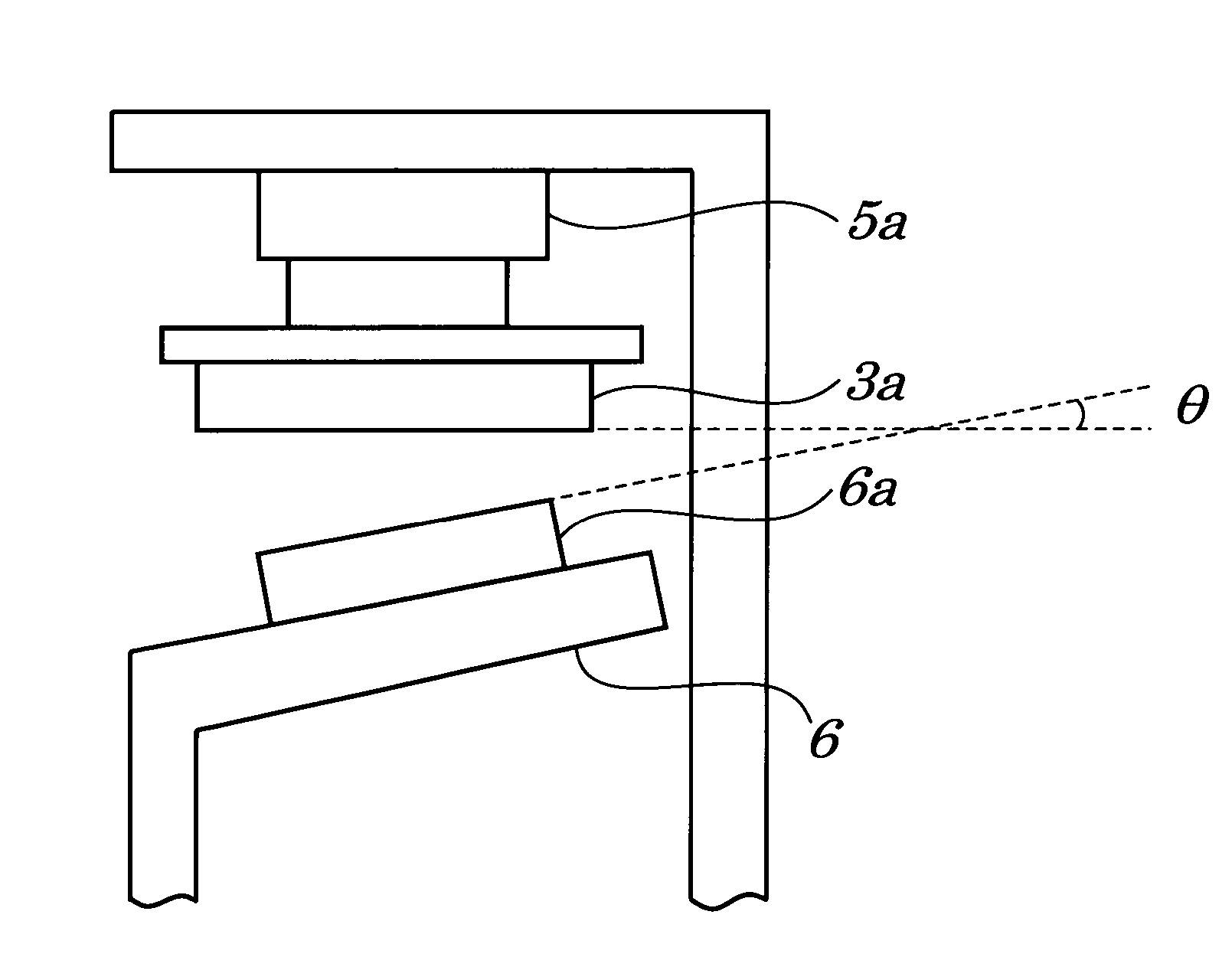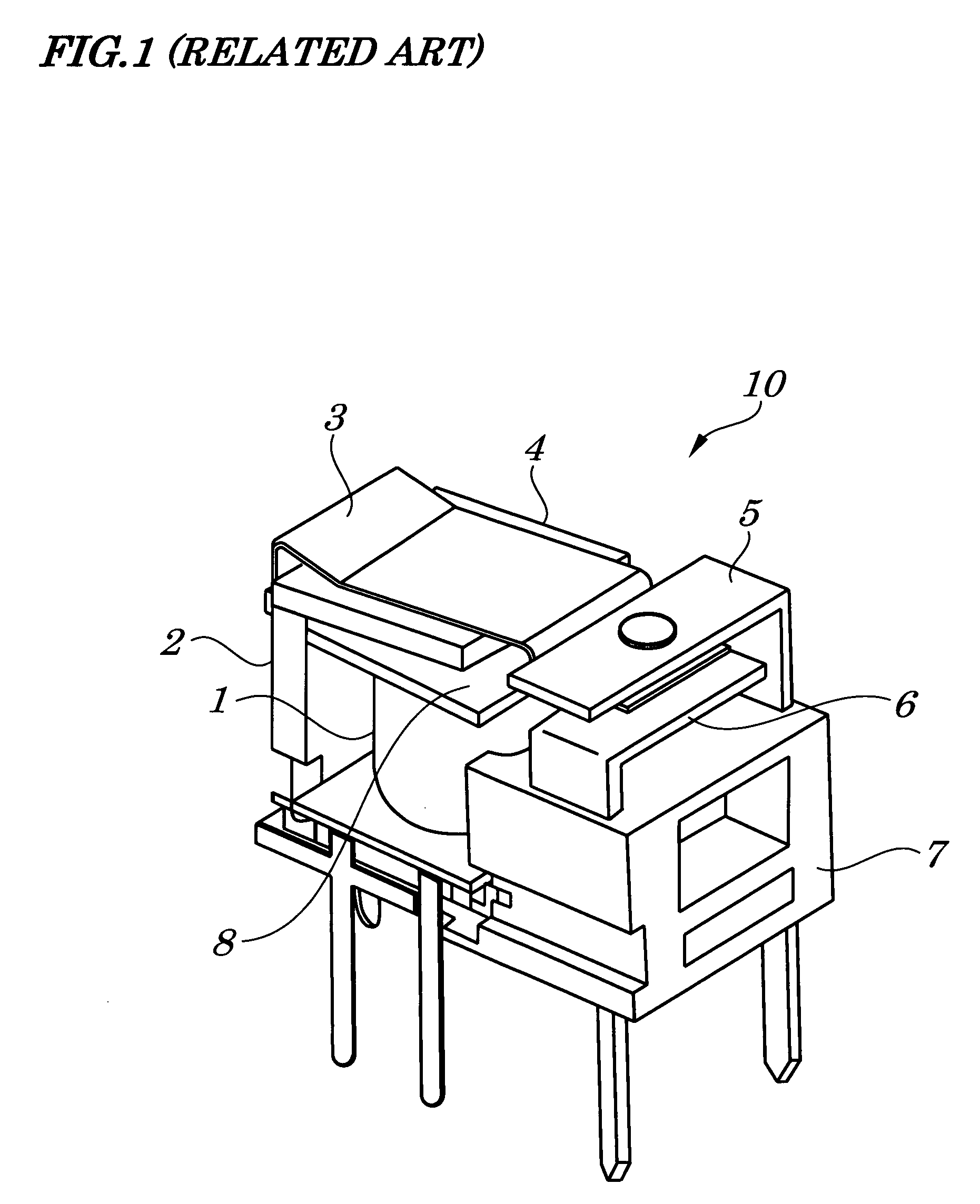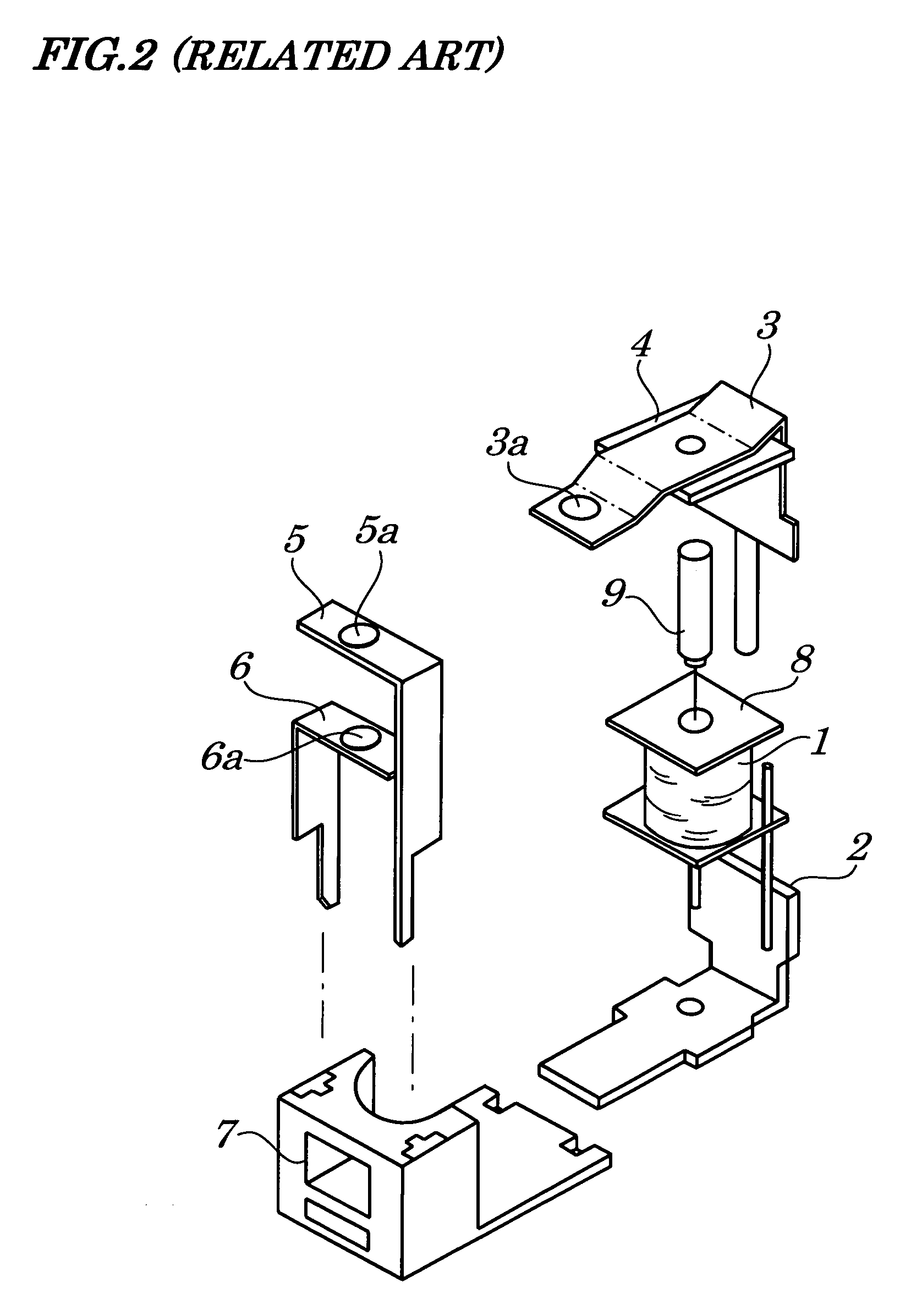Electromagnetic relay
a technology of electromagnetic relays and relays, applied in the field of electromagnetic relays, can solve the problems of reducing current carrying capacity, occurrence of failure, increasing component counts, etc., and achieve the effect of long contact li
- Summary
- Abstract
- Description
- Claims
- Application Information
AI Technical Summary
Benefits of technology
Problems solved by technology
Method used
Image
Examples
first embodiment
[0038]FIG. 4 is a side view of a contact portion when viewed from a direction to which a movable contact 3a slides on a normally open fixed contact 6a according to the first embodiment of the present invention. A normally open fixed contact 6a is inclined and an inclination angle θ is formed by a surface of the movable contact 3a and by a surface of the normally open fixed contact 6a. When a voltage is applied to a coil, the surface of the inclined normally open fixed contact 6a strikes the surface of the movable contact 3a to come into physical contact. At this time point, a movable contact spring 3 bends with attractive magnetic forces, which causes the movable contact 3a and the normally open fixed contact 6a to slide relatively on each other, and which the movable contact 3a is attracted to the normally open fixed contact 6a.
[0039]An electrical life test under lamp-loaded conditions was conducted, using a testing circuit shown in FIG. 7, on an electromagnetic relay having its c...
second embodiment
[0044]FIG. 5 is a diagram showing a side face of a contact portion when viewed from a direction to which a movable contact 3a slides on a normally open fixed contact 6a according to the second embodiment of the present invention. The movable contact 3a is inclined and an inclination angle 8 is formed by a surface of the movable contact 3a and by a surface of a normally open fixed contact 6a. When a voltage is applied to a coil (not shown), the surface of the inclined movable contact 3a strikes the surface of the normally open fixed contact 6a to come into physical contact. At this time point, a movable contact spring 3 bends with attractive magnetic forces, which causes the movable contact 3a to slide on the normally open fixed contact 6a, and which the movable contact 3a is attracted to the normally open fixed contact 6a.
[0045]An electrical life test under lamp-loaded conditions was conducted, using a testing circuit shown in FIG. 7, on the electromagnetic relay having its contact...
third embodiment
[0047]FIG. 6 is a diagram showing a side face of a contact portion when viewed from a direction to which a movable contact 3a slides on a normally open fixed contact 6a according to a third embodiment of the present invention. On a normally open fixed contact 6a is formed an inclined surface being of a convex shape and having an inclination angle θ. When a voltage is applied to a coil (not shown), the surface of the inclined movable contact 3a strikes the surface of the inclined surface of the normally open fixed contact 6a to come into physical contact. At this time point, a movable contact spring 3 bends with attractive magnetic forces, which causes the movable contact 3a and the normally open fixed contact 6a to slide relatively on each other, and which the movable contact 3a is attracted to the normally open fixed contact 6a.
[0048]An electrical life test under lamp-loaded conditions was conducted, using a testing circuit shown in FIG. 7, on an electromagnetic relay having its c...
PUM
 Login to View More
Login to View More Abstract
Description
Claims
Application Information
 Login to View More
Login to View More - R&D
- Intellectual Property
- Life Sciences
- Materials
- Tech Scout
- Unparalleled Data Quality
- Higher Quality Content
- 60% Fewer Hallucinations
Browse by: Latest US Patents, China's latest patents, Technical Efficacy Thesaurus, Application Domain, Technology Topic, Popular Technical Reports.
© 2025 PatSnap. All rights reserved.Legal|Privacy policy|Modern Slavery Act Transparency Statement|Sitemap|About US| Contact US: help@patsnap.com



